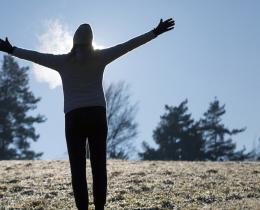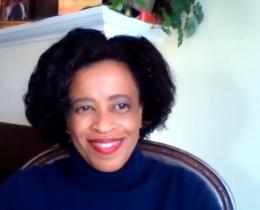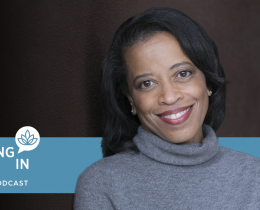There is no doubt in my mind that Buddhism is a religion. It has rituals, traditions, schools, and hierarchical structures. However, Buddhist philosophy, in its purest form, is just a set of principles to help you become awake to the life that you have so that you can live it more completely. If we go back to the original ideas and strip away the extras, if we take the “ism” out of what a brother named Buddha taught, then it's no more and no less than a way of planning your life. It's setting up your social structures and actively engaging your time on this planet by waking up and getting a fundamental grasp on what’s really important. With a little awareness of who we are and our shared humanity with others, we can begin to relax a little.
It doesn’t mean we drop our battles, say "racism and violence don't exist anymore," or lose our passion for pushing for the rights and space that we should have as human beings. Maybe, though, we can begin to approach those efforts more as the work that is here for us to do, like washing those dishes in our house after someone else ate off them, rather than as a struggle, which makes us feel constrained as soon as we hear it. We set ourselves up for a “Us vs. Them” mentality, which is dangerous and in all honesty, unrealistic. Wherever we are is Our House, and we must all live in this house together.
Lessons and insights we can learn from Buddhism can be applied to our lives this very minute. No matter what your situation or station in life, no matter what the color of your skin or the obstacles you face, you can create a better life right now. Even in Buddhist countries around the world, this is the main goal of everyday people. While the people of Tibet appreciate the effort of the monks toward attaining spiritual enlightenment in this lifetime, their day-to-day reality is that they want prosperity and peace in their lives. Not such a bad set of desires, given that we each have a set. Each of us wants basically the same things.
People of color are especially in need of new ways and new answers to the separation and fear we face each day. It wouldn't be a stretch to say that as Black people, more than most groups in this country, we live our daily lives with the distinct taste of fear in our mouths. We have lived with it and incorporated it into the fabric of our being, so much so that on the surface we may not even be aware of it anymore. But the fear is there, and it permeates every aspect of our lives. Proving we are not afraid. Insisting we are not so different. Or acknowledging that we are different and should be accepted that way. Sometimes, in an effort to attain equal footing, we forget what is most important for us to tend to: our hearts, our spirits, going home to family and friends.
We need a way to rise up and peek out from under the smothering blankets and stigma of racism, classism, and out-of-control individualism. But we also need a way to put into perspective our fundamental sense of separation and confusion. Our rage, our love, our dreams and disappointments, the death of our loved ones, the blissful joys as well as the cruel facts of life. It's not the way of White folks we need to get a grasp on, it's the way of life.
Zen principles can provide a framework for creating the meaningful life we want to live, without dogma and restrictions. They can give us direction for addressing our innermost spiritual questions and experiencing their relevance to our lives. While they are not an antidote to the underlying reasons for our fears, these ideas can give us a different way to approach those fears. They can give us insight into the nature of all of our feelings—good, bad, and indifferent—thus changing the way we receive each experience and live each moment. They absolutely can help us see ourselves as inseparable from others and inseparable from the happiness and healing of others.
Really, these simple ideas and practices are about our daily lives, and they wouldn’t be of much use if they weren’t. We are a practical folk, aren’t we? What we really need to address is the baby crying in the other room, the train fare we have to scrape together, the deadline that we need to meet, and that girl that sits in the next cubicle and works our last nerve. In short, we want to know how to be here in this life and be okay just as we are. Like sculptors, we want to take this messy lump of clay that someone told us is our life and make a masterpiece of it...no matter what we’ve been told about who we are and what we can or cannot become. I have discovered that there is an art to being here in this world and, like any other art, it can be mastered.



